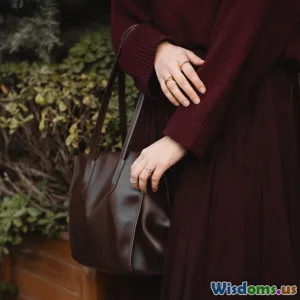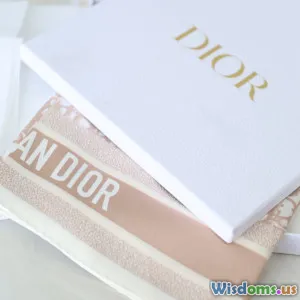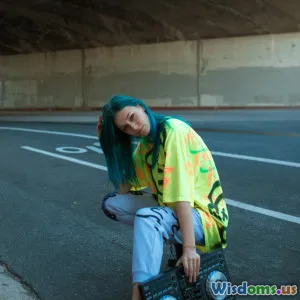
Cultural Influences in Modern Beauty: A Startup's Perspective
7 min read Explore how cultural influences shape modern beauty standards through the eyes of a startup. (0 Reviews)
Cultural Influences in Modern Beauty: A Startup's Perspective
In today’s increasingly globalized society, beauty standards are more diverse and nuanced than ever. The advent of social media and digital platforms has empowered expressions of beauty from different cultures, enabling them to vie for recognition in a sea of traditional norms. Amidst this backdrop, startups within the beauty industry are challenged to adapt, innovate, and stand out by embracing cultural influences. In this article, we'll explore how these influences shape contemporary beauty trends, the critical role of diversity and representation, and the strategies that emerging businesses can adopt to tap into these cultural nuances for success.
Understanding Cultural Influences in Beauty
Cultural influences permeate every aspect of beauty – from skincare rituals to makeup trends and even marketing strategies. According to a 2021 report by McKinsey, 73% of consumers expect beauty brands to be inclusive in their advertising. This sets the stage for brands to not only cater to a broad demographic but also to successfully lean into the roots of beauty that are often intertwined with identity, traditions, and personal expressions.
The Impact of Global Movements
One of the pivotal movements that have propelled cultural awareness in beauty is the recognition of non-Western beauty practices. For instance, the rise of Korean skincare routines has redefined the way people view skincare globally. Products such as essences, sheet masks, and sleeping packs, which hail from Korea, have become staples in the beauty regimes of individuals worldwide. A startup aligned with these trends could incorporate K-beauty principles into their product range or leverage its aesthetic in marketing campaigns.
Moreover, cultural events like the Afro Hair & Beauty Show in the UK spotlight the diverse narratives behind different hair types and beauty practices, enabling brands to break traditional stereotypes and appeal to consumers looking for representation and authenticity.
Diversity in Representation
For beauty startups, representation goes beyond surface-level inclusion; it is about representing the stories and realities of diverse cultures authentically. The backlash against brands that promote limited beauty ideals continues. For example, when all-white ad campaigns were launched, brands like Dove position their marketing strategy differently, showcasing women of all skin tones and body types, ultimately enhancing relatability and trust.
A report by ColorComm found that 60% of consumers feel more positively toward brands that promote diversity. Startups can learn from this by hiring a diverse workforce that reflects their target audience. Compelling narratives from different cultural perspectives can resonate with a wider consumer base and establish loyalty, which is crucial for a startup still carving out its niche in a competitive industry.
Identify and Embrace Cultural Nuances
For beauty startups looking to ride the wave of cultural influences, here are some strategic steps to consider:
1. Research Cultural Trends
Understanding cultural movements is vital. This comes from engaging with communities, tapping into cultural events, and conducting thorough market research. By staying attuned to shifts in trends, startups can not only anticipate consumer demands but also foster a genuine connection with their brand.
For example, beauty brands focusing on sustainability have found that particularly Gen Z cares about molecular sustainability in beauty products. Incorporating these practices can align the startup with larger cultural values that are meaningful to consumers today.
2. Craft Inclusive Marketing Strategies
Marketing begins with narrative development. Develop messaging that highlights the beauty across cultures. Utilize diverse models in promotional activities and adapt marketing messages to resonate with multiple cultural backgrounds. This shouldn’t be a mere checkbox exercise, but an opportunity to build lasting relationships with a diverse customer base.
Exploring platforms popular in specific cultural demographics, such as TikTok in the beauty tutorial space, can also help startups reach younger, trend-conscious consumers, while simultaneously elevating diverse beauty advocates.
3. Collaborate with Influencers from Various Cultures
Partnering with beauty influencers who possess credibility and authenticity can add immense value to a brand. Startups should seek influencers from diverse backgrounds who can speak genuine truths about their culture and beauty practices. A striking example is UOMA Beauty, founded by beauty influencer Sharon Chuter, which encapsulates the intersection of culture and cosmetics with a powerful work of art integrated into their beauty lines.
These collaborations often present the didactic opportunity of educating consumers about the influences of different cultures, thereby promoting inclusivity as a core brand value.
Challenges of Cultural Appropriation
Fostering a commitment to cultural appreciation rather than appropriation is essential for modern beauty brands. Cultural appropriation occurs when brands commoditize elements of a culture without respecting their context or significance. High-profile backlash when beauty companies release products that borrow sacred symbols from minority cultures can result in public ridicule, lost trust, and sales.
An illustrative case was when the cosmetic giant Kat Von D faced severe backlash after introducing a line called
Fashion & Beauty
Rate the Post
User Reviews
Popular Posts





















